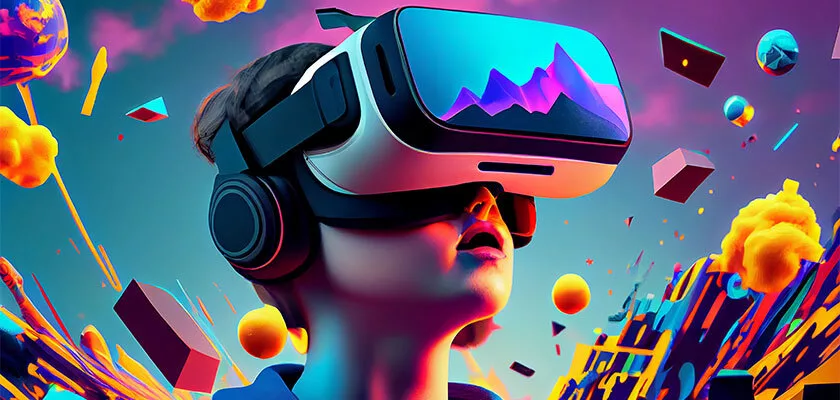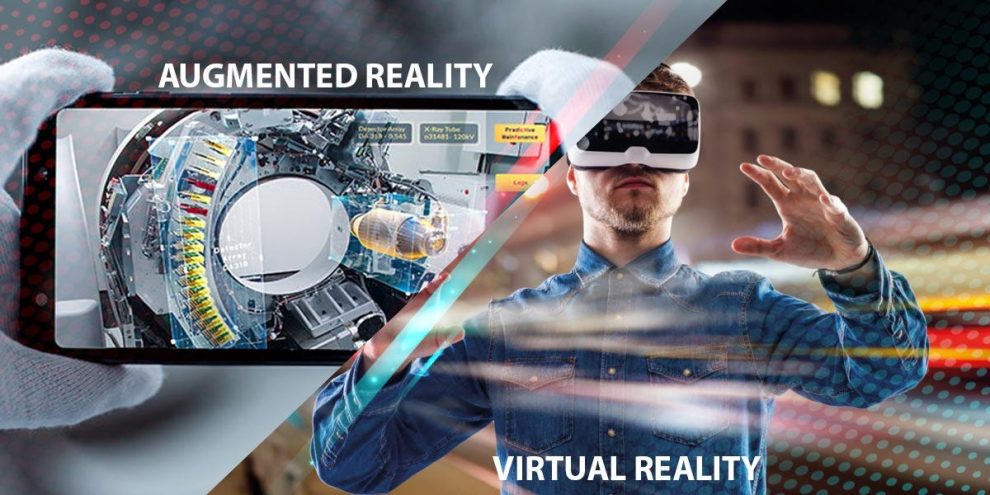Augmented and virtual reality (AR and VR) are poised to transform the way we experience entertainment and education, unleashing a wave of exciting possibilities and blurring the lines between the real and the virtual.

In Entertainment:
Immersive Storytelling: Imagine stepping into your favorite movie or game, interacting with characters, and shaping the narrative. VR allows for unparalleled immersion, placing you right at the heart of the action. AR, on the other hand, can overlay digital elements onto the real world, bringing fictional creatures and objects to life before your eyes.
Enhanced Live Experiences: Concerts, sporting events, and even museum exhibits can be enriched with AR and VR overlays, providing additional information, interactive elements, and new perspectives. Imagine cheering for your favorite team alongside fans worldwide in a virtual stadium, or exploring historical artifacts with interactive 3D models.
Next-Level Gaming: VR creates truly immersive game worlds, where you can climb mountains, explore alien planets, or battle dragons as if you were actually there. AR can layer game elements onto the real world, transforming your living room into a battlefield or your backyard into a magical forest.

In Education:
Interactive Learning: Imagine dissecting a virtual frog in biology class or exploring the surface of Mars in a virtual field trip. AR and VR can bring textbooks to life, making abstract concepts concrete and engaging students in ways traditional methods simply cannot.
Skill Development: From practicing surgery in a VR simulator to mastering public speaking in a virtual environment, AR and VR can provide safe and realistic training grounds for developing essential skills in various fields.
Global Access: Virtual classrooms and libraries can break down geographical barriers, providing educational opportunities to students in remote areas or those with disabilities. Imagine attending lectures from renowned professors across the globe or visiting historical sites without ever leaving your classroom.
However, alongside the excitement, challenges remain:
- Accessibility: High-end VR equipment can be expensive, limiting access to a wider audience.
- Content Creation: Developing high-quality AR and VR experiences requires specialized skills and resources, which can be a hurdle for educators and smaller entertainment studios.
- Health Concerns: VR can cause motion sickness and disorientation in some users, requiring careful consideration and development of best practices.
Despite these challenges, the potential of AR and VR in entertainment and education is undeniable. As technology advances and becomes more accessible, we can expect to see a surge in innovative applications that revolutionize how we learn, play, and connect with the world around us.
















Add Comment